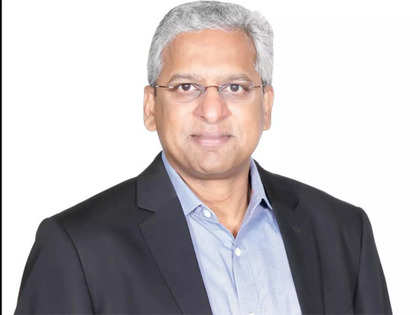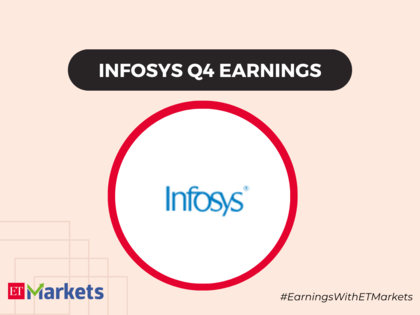Elevate Your Tech Prowess with High-Value Skill Courses
| Offering College | Course | Website |
|---|---|---|
| IIM Kozhikode | IIMK Advanced Data Science For Managers | VISIT |
| IIT Delhi | IITD Certificate Programme in Data Science & Machine Learning | VISIT |
| Indian School of Business | ISB Product Management | VISIT |
| Indian School of Business | ISB Professional Certificate in Product Management | VISIT |
Lok Sabha Elections 2024 Phase 1 Polling: Live updates
By leveraging the benefits of blockchain, a distributed digital ledger, this dairy now wants payments to be reconciled in a matter of hours. It can perhaps learn from Bajaj Electricals, the 79-yearold provider of electrical gear. Last year it unveiled a solution for vendor payments, which shrank processing time from weeks to a matter of hours. Other companies across industries such as manufacturing, logistics and automobiles are in various stages of testing this relatively old record-keeping platform for new requirement.
For example, a handful of state government departments are tinkering with this technology to improve record storage, while supply chain companies are trying to use this platform to manage its disparate ecosystem. In December 2016, the Mahindra Group unveiled the use of blockchain for its supply chain finance unit.
As the interest has grown across the board, everyone is tinkering with their own blockchain projects. Over the last few months, India’s largest lender, the State Bank of India (SBI) has been running an initiative called Bankchain, in partnership with IBM, Microsoft, Skylark, KPMG and 10 commercial banks to use blockchain to try to minimise fraud.
Private sector rivals such as ICICI Bank, Yes Bank and Axis Bank too have been experimenting with this technology. "Blockchain opens up the opportunity to redefine money transfer globally," says B Madhivanan, chief technology and digital officer, ICICI Bank. The bank, over the past few months, has become part of three consortiums to build its in-house capabilities, as it seeks to understand a technology that has the potential to redefine the financial services market.
Timing may be everything. While there has been plenty of hype around blockchain over the past couple of years, recent developments suggest that interest, especially from the financial services industry, may have cooled. R3, a consortium of 72 of the world’s leading financial institution focused on building blockchain solutions, has seen its ambitious funding plans pared — from raising $200 million by selling 90 per cent of the company to selling 60 per cent for $150 million. Goldman Sachs, Santander and
Popular in TechMore ≫
Morgan Stanley opted out of this fund raise, as the consortium — and many businesses around blockchain — struggled with moulding the ideals of Silicon Valley to the realities of Wall Street. Then funding, the lifeblood of any startup ecosystem, has also dwindled recently. According to data from CB Insights, a tracker of such data, the number of deals in bitcoin and blockchain in the US fell from 161 in 2015 to 132 in 2016.

While this market has relied on traditional, centralised, computing infrastructure, recent developments have begun to expose its limitations. In the middle of 2016, Union Bank of India was robbed of $171 million in an online currency swindle. Others such as ICICI Bank, SBI and Bank of India have all been hit by hackers recently. "Corporations are fighting a costly, losing battles using existing (centralised) databases to secure their data," says Toshendra Sharma, founder, Records Keeper, a startup working to build solutions using this technology. "The decentralised, secure nature of blockchain offers a safer alternative."
The Indian market then is yet to feel the aftershocks of the funding slowdown in the US.
Bit by Bit
Records Keeper is hardly the only startup trying to build a business on blockchain — several others tout their solutions too. For example, in Bengaluru, twin brothers Ankit Ratan and Arpit Ratan and friend Ankur Pandey are building Signzy, a venture providing eKYC, data intelligence and digital contracts using blockchain, while Kunal Nandwani, an entrepreneur in Chandigarh, has launched Hashcove, a distributed and decentralised information database.
Elsewhere, Rohas Nagpal, a veteran of cyber crime and security, has spent the last couple of years building Primechain, which offers plug-and-play software kits to enterprises looking to build blockchain-based solutions. Other entrepreneurs are thinking even further afield — the founder of RealX, Manish Kumar, says he wants to use this technology to develop a fractional real estate ownership startup. "If bitcoin was the killer app, then the tipping point will be widespread regulatory approval for the use of blockchain-based solutions across industries," says Karthik Balasubramanian, founder of KrypC, a fintech firm that specialises in blockchain development.
"Startups focused on blockchain are at least two years away from going mainstream," says Nagpal of Primechain. In the interim, both startups and oldworld banks are spending their time sharpening their capabilities. For example, ICICI Bank has been running proof of concepts for at least a year now, focused on areas such as trade finance, which involve customers and partners scattered across the world, to ascertain the future of this technology.
"The biggest advantage for the trading community is cutting through layers of intermediaries… the potential is to close the loop from 7 -10 days currently to 20 minutes flat," says Madhivanan, the bank’s tech chief. Despite this being a decentralised offering, he believes that the regulator, the Reserve Bank of India, will play a central role in the evolution of blockchain.
"While we have made some strong progress, we are far from going mainstream with this technology, since there are several issues (dispute resolution, for instance) that have yet to be sorted out."


The Right Fit?
Startup founders are split on the looming presence of large banks and the likes of the RBI in what is meant to be decentralised platform like blockchain, which critics contend is about being distributed without such oversight in first place.
"Most use cases involving banks and financial institutions are overhyped and won’t last beyond early proof-ofconcept pilots," says Nandwani, founder of Hashcove. He wants to leverage blockchain to build a decentralised information database, along the lines of Wikipedia.
Hashcove’s product, to be launched in the next quarter, according to Nandwani, will be a collaborative information platform, with the focus on building a secure data repository for initiatives like KYC. "Anything that banks will do around blockchain won’t work… large banks have known and trusted each other and can improve their capabilities using existing technology," he adds. "We believe we can make better use of this technology by looking elsewhere to leverage its strongest features." Hashcove has three products based on blockchain—uClear, a solution for real time settlement, KY Chain, a solution to share documents for KYC, and HashDegree to digitally issue a range of educational certifications.
However, others such as Ankit Ratan, cofounder of Signzy, a developer of eKYC, data intelligence and digital contracts using blockchain in Bengaluru, take a more pragmatic approach to regulators and central banks. "Our stand that the core of the blockchain market would be occupied by regulators and large financial institutions has been validated by initiatives from organisations, including the RBI," he says.
Companies like Signzy will work around these large entities to build utilities based on blockchain. Signzy is using other emerging technologies - ranging from AI to Aadhaar - to build KYC, digital contracts and algorithmic risk intelligence to its customers. "Using our solutions, customers can be compatible from the day blockchain proliferates, rather than spend a year or more rebuilding their backbone to keep pace with these changes," he adds. Signzy has been working in the field for at least three years, starting with digitising legal contracts and adding a layer of AI and blockchain to authenticate these deals. "We want to take oldworld paper deals and use cutting-edge technology, especially blockchain, to greatly hasten the mostly manual verification process," says Ankur.
Financial services may play a leading role, when this switch happens. "Financial services is leading the adoption of blockchain, with other sectors such as logistics showing a strong interest," says Rajendra Mhalsekar, head, corporate banking technology, Yes Bank.

No Longer Anonymous
While the original aim of blockchain was complete anonymity, enterprises are today working on a tweaked model, called a permission ledger, which gives a limited number of people oversight into the chain of transactions. According to Mhalsekar, blockchain could eventually be all-encompassing for the financial services industry, even if stronger adoption is some time away. "As a bank, we can safely say blockchain is the future," he adds. Yes Bank itself played a key role in Bajaj Electricals' adoption of a blockchain - curiously, the idea germinated with TI Cycles in Chennai, but was scuppered due to an uncertain political atmosphere in the state - and Mhalsekar says more group companies of the auto giant are keen to roll out some pilot projects too.
However, the low-hanging fruit for Yes Bank are the 200-odd companies signed with its corporate finance unit, all of which have scattered businesses and a complex network of vendors and partners to manage. "With the RBI also getting into various government units and Income-Tax Department showing interest in this technology, widespread adoption isn't far away."
It is this adoption that entrepreneurs like Balasubramanian of KrypC are keen on. After spending much of the past two decades in the payments market, it was natural to gravitate towards blockchain. While he started this journey looking to build around bitcoin, he quickly realised slow-tochange regulation would hamper any initiatives on that front.
Instead, KrypC, rather grandly, wants to focus on a new way of doing business by combining blockchain and AI to build Krama, a platform to construct applications based on this distributed ledger. "We are trying to build a platform where not just programmers, but even business users can quickly build these apps," he adds. Then, the company is also building payments and retail solutions built on blockchain, as it hunts for customers even outside India, with a greater focus on the US market. "We are building products for the global market from here, and the domestic and the US are just the first two steps in this journey," says Balasubramanian.
Other startups too hope that they can make similar headway. In Mumbai, Records Keeper's CEO Sharma says he gets five to 10 requests a day from people eager to pick up the nuances of this emerging technology. His venture builds solutions for firms in pharma and healthcare and government agencies to safeguard confidential data of patients, customers and citizens. With the hacking of data becoming increasingly common, this new method of safeguarding may be handy.
"You can build multiple layers of security, but you can't stop internal sources from getting your data," says Sharma. Records Keeper uses blockchain to provide better security to users. It will remove questions of trust involving an intermediary and since it isn't stored on a central server, is also safer. "There's massive cost associated with doing this traditionally for industries such as pharma (for storing medical records), and they are keen to look at cheaper ways of doing business," he adds. To bolster its offerings, ReCoin Blockchain, Record Keeper's blockchain solution, will soon be supported by Public Miners, to make it more trusted. "Everyone thinks blockchain is bitcoin, just like Google is a synonym for the internet," he adds. "We think there's a chance to change this perception."
Other entrepreneurs want to cash in too. Manish Kumar founded Grex, an online private market platform, three years ago. Now, he's looking to take some of the learnings from that venture into his next startup RealX, which focuses on fractional real estate ownership. Rather than owning an entire piece of land, RealX uses blockchain to provides investors a smaller chunk of land to own and trade, just like a stock market, not to live in.
Like other startups, it leans on its distributed and secure features to keep transactions watertight. If financial services were better regulated while running Grex, blockchain is much less so, with companies needing to rely on limited regulation and, in the case of RealX, setting up an online real estate registry to get business started. "We started with a pilot project in Maharashtra and we are already considering an expansion to other states," says Kumar.
Bit by bit and block by block, a range of companies, from old-world financial services companies to diversified industrial conglomerates and new-age startups, are recasting the way businesses manage their money and their operations..
( Originally published on May 07, 2017 )







